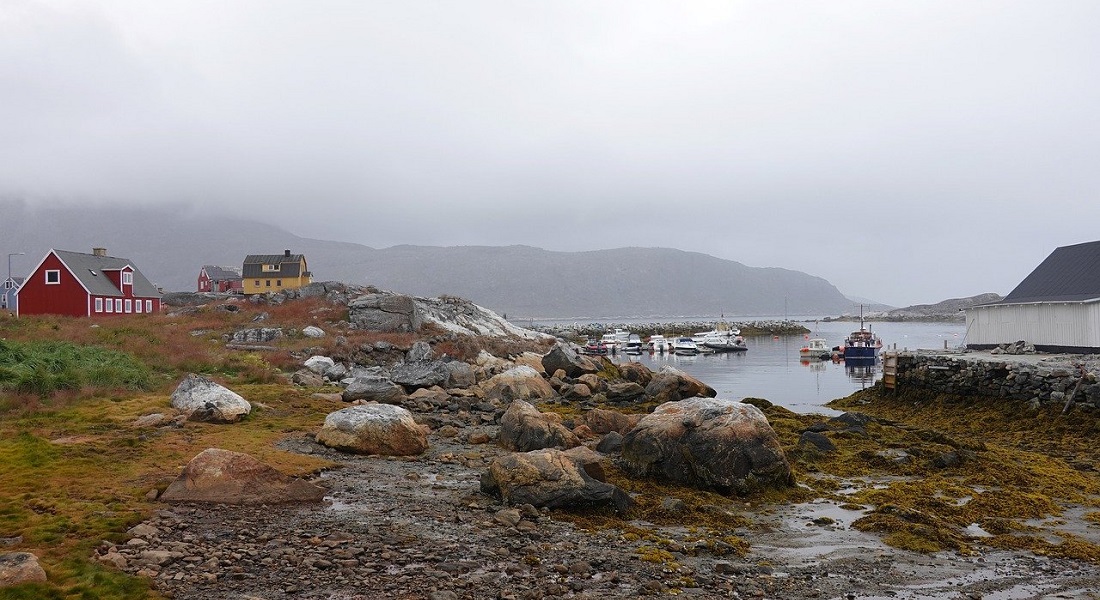Representation and Legitimacy

Greenland's representation in the Copenhagen diplomatic corps
Jens Henrich
Abstract
The Government of Greenland has established five representations - the Representation in Copenhagen was the first. It came shortly after the introduction of Home Rule (1979), and it´s primary objectives are; supporting the Greenland Government, promoting Greenland interest and function as a portal for relations with the outside world. A number of countries have embassies in Denmark (68) and the initiation of relations from the different countries with Greenland often start through the Representation in Copenhagen. The Representation represent Greenland in different fora, and participate in communicating Greenlandic priorities.
Speaker bio
Jens Heinrich (1973), MA and Phd, Ilisimatusarfik/University of Greenland, Greenlandic-Danish, Head of Greenland Representation in Copenhagen since January 1, 2022 - former work include research, curator at Greenland National Museum and vice chair in Greenland Reconciliation Commission.
Foreign policy and legitimacy in the 'Community of the Realm' between Greenland and Denmark
Ulrik Pram Gad
Abstract
In the 'Grundlov' basic law, Denmark presents itself as a unitary state. However, in political discourse and practice the position of the Greenland and Faroe autonomies betrays a much more complex relation. The presentation first charts how the oxymoronous concept 'Community of the Realm [Rigsfællesskabet]' has been developed from legal nullity to effective paradox as part of a struggle to establish the postcolonial relation as 'equal'. Particularly, the presentation zooms in on how attempts to produce legitimacy in foreign policy decision making has been driving the latter stages of the process, on a background of Greenlandic historical experience and future ambitions as well as a combination of impotence and pragmatism on the Danish side.
Speaker bio
Ulrik Pram Gad is a senior researcher at the Danish Institute for International Studies. He earned his Ph.D. in political science from the University of Copenhagen, where he also did postdoctoral work in the Center for Advanced Security Theory. Publications include the monograph National Identity Politics and Postcolonial Sovereignty Games: (2016), the book chapters 'Unity or Community' in Eklit et al. (eds) Oxford Handbook of Danish Politics (2020) and 'Grønland som Udenrigs- og Sikkerhedspolitisk Aktør' in Clemmensen & Sørensen (eds) Sikkerhedspolitik i Arktis og Nordatlanten (2021 w. Sara Olsvig), and a series of DIIS policy briefs digging into the mechanics of Greenlandic/Danish foreign policy coordination. Before entering academia, he worked for the Government of Greenland and the Danish Ministries of Culture and Foreign Affairs.
Greenland and the Danish Folketing
Mette Marie Stæhr Harder
Abstract
Although the Danish Folketing is an important arena for political life in the Realm, we know very little about North Atlantic mandates’ representation in the Danish Folketing. This presentation takes a closer look at the political representation of Greenland as it has been carried by the Greenlandic representatives since 1953.
Speaker bio
Mette Marie Stæhr Harder is a senior lecturer at the Department of Political Science, Karlstad University and a Carlsberg postdoc at the Center for European and Comparative Legal Studies, Department of Law, University of Copenhagen. She publishes on legislative representation, parliamentary institutions, gender, and indigenous politics. Among others, her work has appeared in journals such as Scandinavian Political Studies, Representation, and Parliamentary Affairs. She holds a PhD. in Social Science from Roskilde University.
Click here to register for the event.
See a list of all the seminars in the CECS Seminar Series for Spring 2022.
